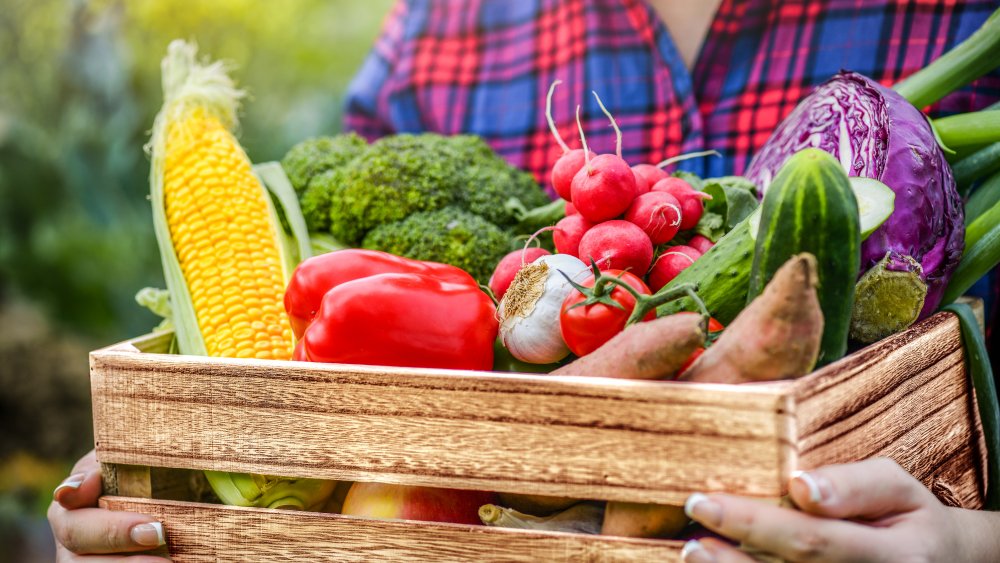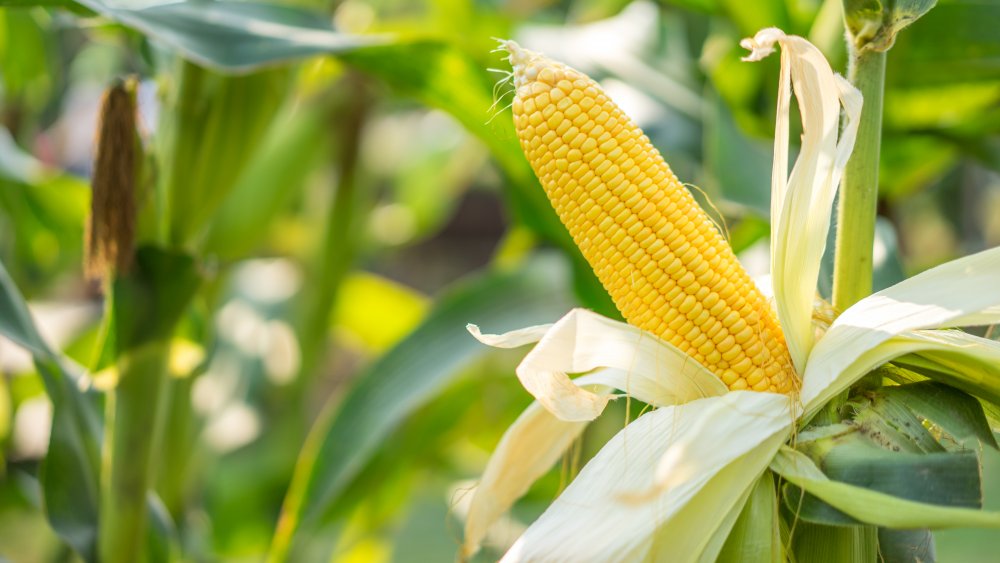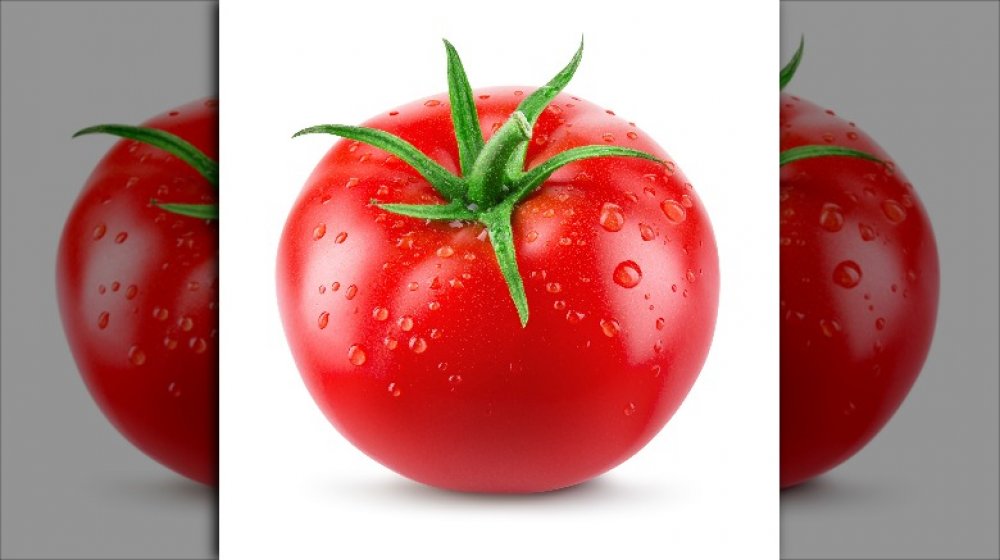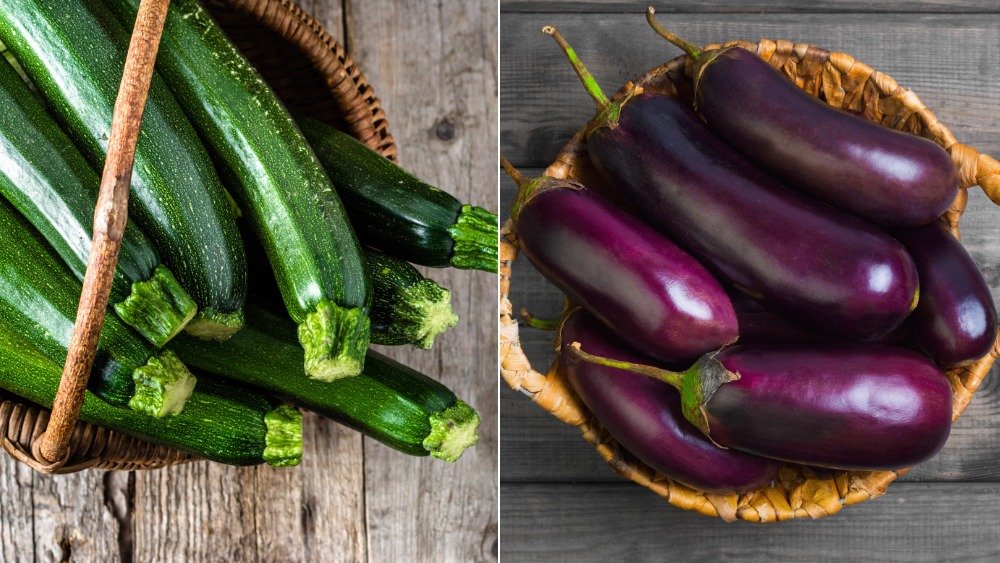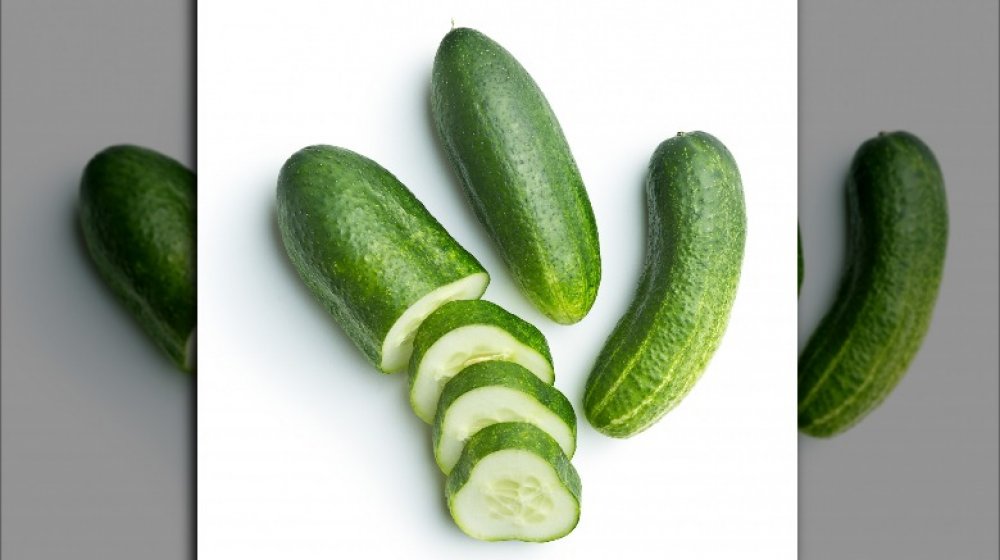These Veggies Are Best In Summer Months
While fall veggies (think: pumpkin, squash, parsnips, rutabagas) can be amazing, especially in those heartier soups and stews that make it easier to reconcile yourself to the coming cold weather, summer produce is always going to be the best for vegetables that are better raw or just lightly cooked. As Heather Ramsdell, culinary expert and editorial director of The Spruce Eats, puts it, "A vast majority of vegetables are noticeably riper, more fragrant, and more delicious in North America in July and August."
While Ramsdell, like the rest of us, still resorts to eating out-of-season veggies over the winter, she characterizes most of them as "meek, a little bit shriveled and bland" due to their having had to travel great distances from the lands where they're still grown during colder months. As she says, though, winter vegetables just whet her appetite for the riper, better ones to come in warmer weather: "Eating these stand-ins is how I build my true deep appreciation for the summer versions."
When we asked for her recommendations on vegetables that hit their peak of perfection during the summer months, she provided us with the following list of favorite end-of-summer vegetables, although acknowledging that their seasonality may vary a bit depending on whether you live in a warmer or colder area than her home state of New York.
Corn
Corn is perhaps the quintessential summer vegetable, since what would a backyard barbecue or a campfire cookout be without it? Ramsdell says corn is best when it's fresh-picked. "Freshness equals sweetness when it comes to corn on the cob," she said. While corn on the cob is still enjoyable days after it's been picked, still, she says, "The sweetness starts falling off the moment they are separated from the stalk." If you can't pick the corn yourself, she advises looking for farmer's markets, farm stands, or roadside tables where home gardeners sell their surplus produce with honor-system cash boxes.
When selecting what appear to be the ripest ears of corn, feel all the way down the cob to the tip and choose the ones with fat, full kernels. Avoid any ears of corn where the kernels at the tip are hollow or shriveled. Corn can be used in chowder, in esquites or elote, or just enjoyed straight off the cob with a little melted butter and salt. Her final tip regarding this most excellent summer veggie? "Buy corn often, if you can," she said. Summer is fleeting, after all, and frozen kernels just aren't the same thing.
Tomatoes
In summer, it seems, everyone's garden runneth over with tomatoes, a vegetable that groweth in abundance. This is a good thing, though, since sun-ripened tomatoes are a real delight, and one only possible in summer. Ramsdell says that tomatoes need a lot of warmth and sunlight for their natural sweetness and full range of flavors to develop. Should you be thinking of growing your own, you may wish to try some of the many heirloom varieties available. About the variety of heirloom tomatoes available in the summertime, Ramsdell explains, "Bumpy, colorful, small and large... so various you could try a new one every day in August and never eat the same type twice."
You can tell if tomatoes are perfectly ripe by their weight and smell, as they should feel heavy and the stems should smell sharp. Avoid any tomatoes that are bruised or bursting, however, as Ramsdell says that damaged tomatoes won't last long. She also cautions to store tomatoes at room temperature, since "in the fridge... their flavor will be forever muted." As to what you should do with a bountiful harvest of tomatoes, you can begin with Caprese salad and gazpacho, then move on to tomato pie, tomato juice, and home-canned tomatoes. (With this last-named method of preservation, please do take care to avoid botulism!)
Zucchini and eggplant
Zucchini is another vegetable that grows and grows in the summertime, whether you want it to or not. In fact, you may even have been the recipient of a gardener's version of ding dong ditch, where a neighbor sneaks a bag of unwanted zucchini onto your porch. Eggplant excess does not seem to be quite so much of a problem, however.
Should you not happen to be possessed of either a garden full of either vegetable nor a generous neighbor, you may actually have to go out and buy your zucchinis and eggplants. Ramsdell suggests you seek out zukes and eggplants that have fresh-looking stems and that feel both firm and heavy for their size. She explains that with these veggies, "This heaviness translates into juiciness."
She also advises that eggplants should have shiny skins, while zucchini should be nice and smooth. Steer clear of super-huge zucchini, however. "These giants are still edible but they can get stringy and their seeds get a bit tougher," she notes. As to what you can do with these veggies, eggplant can be grilled or used in ratatouille or baba ganoush, while zucchini plus spiralizer means zoodles, or, if you prefer to play with your food, you can always make zucchini boats.
Cucumbers
Cucumbers are a vegetable of surprising variety. Ramsdell notes that they come in numerous types, besides the regular waxy salad cukes and long plastic-wrapped English ones available in supermarkets year-round. She mentions tiny Persian cucumbers and stubby little Kirbys that can be found out of season, but admits that one of her favorite summertime activities involves going to a farm stand or farmers market and "buy[ing] one of every single type of cucumber there, and then slic[ing] them all up at home and eat[ing] them all with salt."
As far as selecting the ripest cucumbers, she says to check the stem ends to make sure that these are not shriveled, although obviously the size, shape, and color will vary with the variety of cukes you select. As to what to do with them should you tire of salted, sliced cucumbers, you can always toss them in a garden salad, use them for a creamy dip like tzatziki, and of course, there's always pickles!
